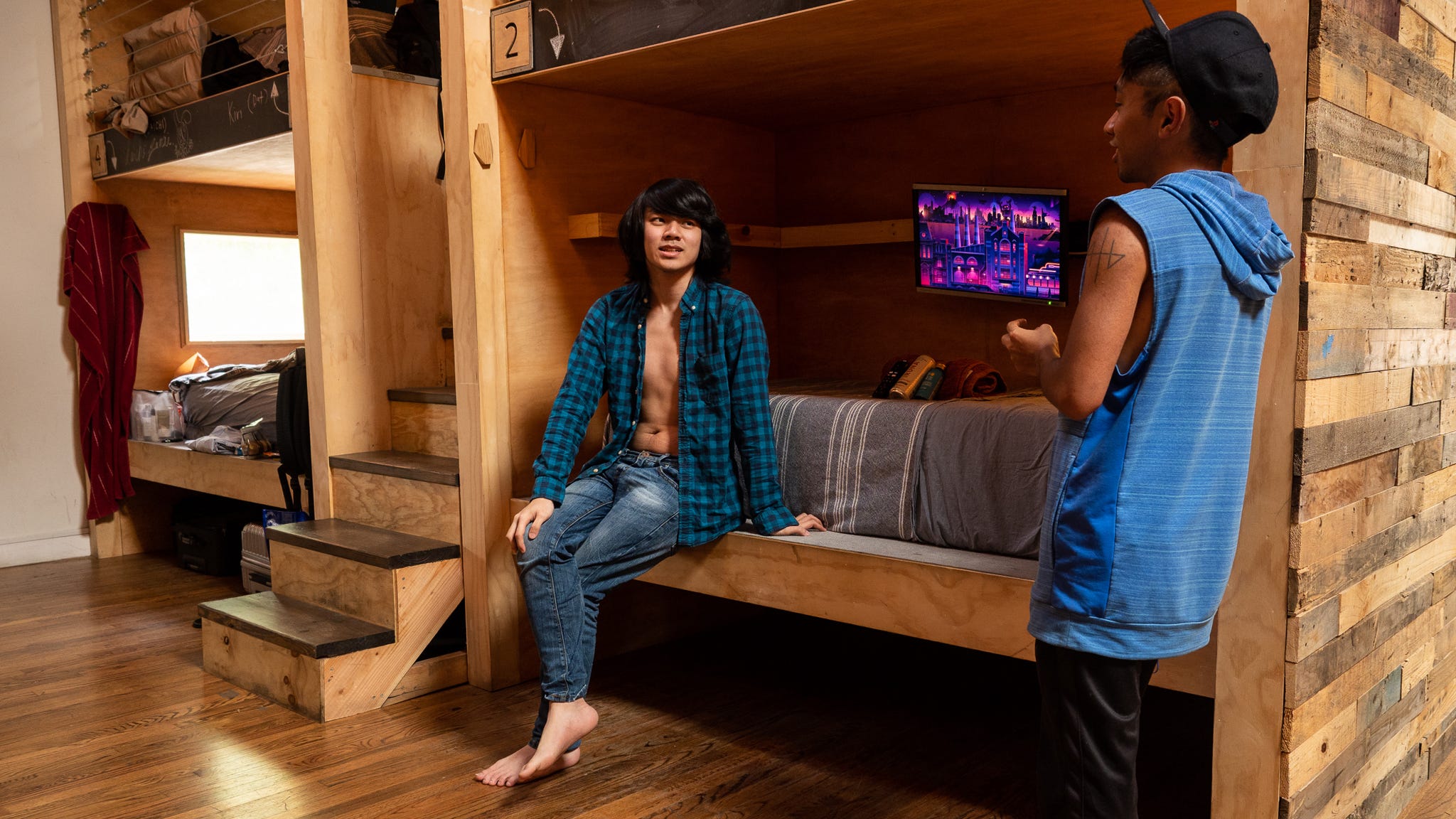No Sex in the Bunkbeds! Tales from the Most Intimate Sharing Economy Startup Yet
Privacy is rare, quiet hours are sacred, and don’t even think about hooking up. Meet the grown-ups who call the glorified dormitories of PodShare home.

Photography by Yunuen Bonaparte | Edited by Brendan Spiegel
From the street, PodShare Venice looks mysterious. The top of a black A-framed building peeks out from behind a privacy-screened chain-link fence on the corner where busy South Venice Boulevard meets a side street of xeriscaped beach cottages. But inside, the yard is typical, not unlike the one outside my own apartment building, 12 miles east in Hollywood — only the grass here is a little cleaner, the landscaping is a little nicer, there’s a basketball court on the grounds, and we’re five blocks from the beach.
A tall, middle-aged Indian man, shirtless in yoga pants and a purple scarf, lounges on a wooden futon in the grass, feet together and knees out, in Baddha Konasana position, tapping on his iPhone. A 20-something blond guy wearing American flag shorts and a Vans T-shirt reads a book in a nearby hammock. It’s a sunny, 65-degree day in Los Angeles, and my first time staying at a PodShare. For $60 per day, each of us gets ac…
Keep reading with a 7-day free trial
Subscribe to Narratively to keep reading this post and get 7 days of free access to the full post archives.


